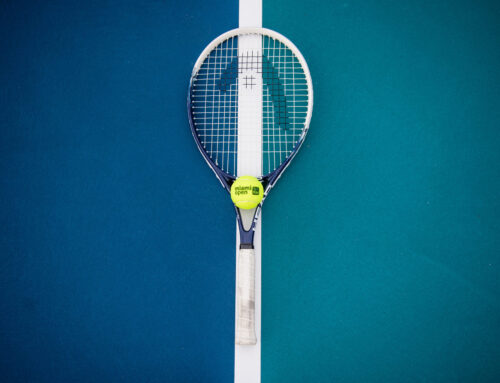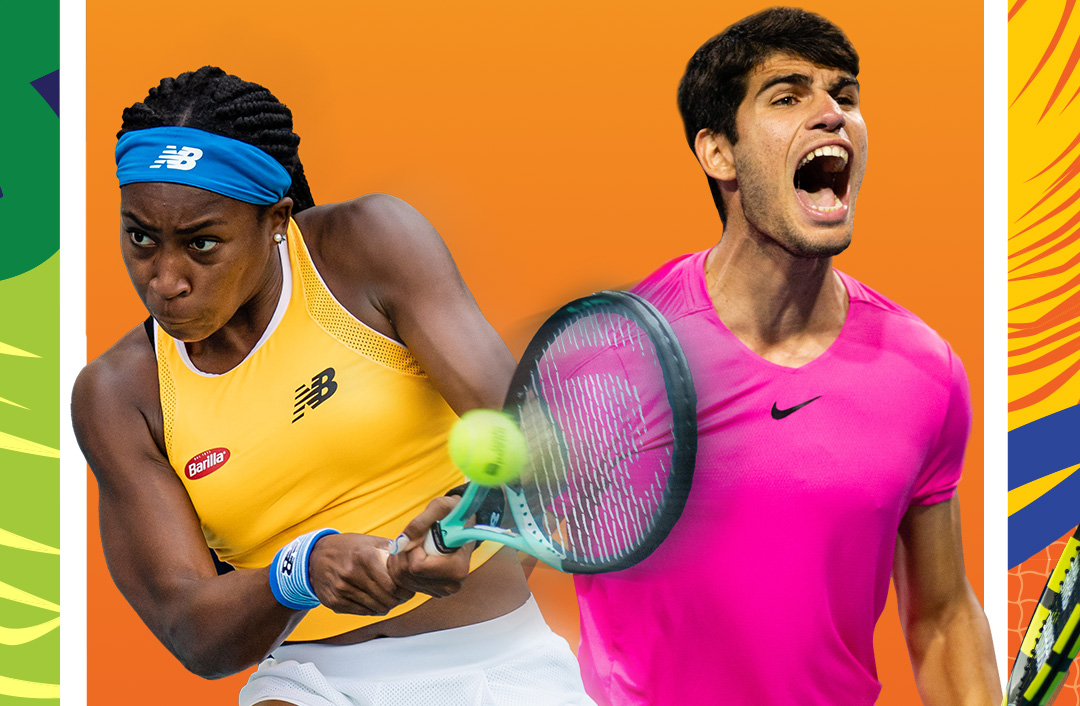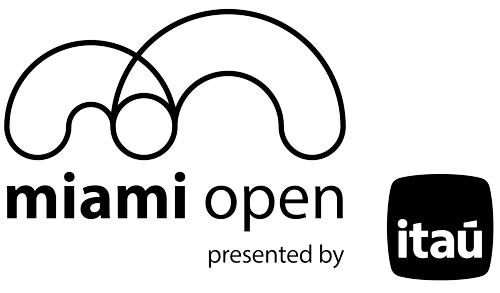By Steve Gorten
KEY BISCAYNE – No one had broken John Isner’s serve all tournament, this was only the third time since 1991 that a player had reached the Miami Open semifinals unscathed.
Novak Djokovic did it twice Friday night – in the same set.
The world’s No. 1 player and top seed handled the powerful, 6-foot-10 American’s serve splendidly, and even struck more aces than him, in a 7-6 (3), 6-2 triumph on stadium court. The second set lasted just 28 minutes.
“It’s important to elevate your level of performance towards the end of the tournament, and this was the right day, the right time, for me to perform as well as I did,” Djokovic said. “It’s always tough to play somebody that serves that well. It’s at times frustrating. But it is important to hang in there mentally, be patient and make him play. That’s what I’ve done.”
“I put a lot of pressure on his second serves, moved him around the court, always made him play an extra shot, had some variety in my game. I used the court very well. I’m just pleased with the performance.
Djokovic, a four-time Miami Open champ, will try for his second consecutive title at Crandon Park Tennis Center, and fourth in five years, in Sunday’s final against third-seeded Andy Murray.
Djokovic and Murray have combined to capture six of the past eight Miami Open men’s titles, and the two, along with Roger Federer and Rafael Nadal, have won 40 of the past 44 ATP Masters 1000 tournaments.
Isner, the highest-ranked American at No. 24, came into the semifinal with a pair of back-to-back wins against top-10 opponents (No. 6 Milos Raonic and No. 5 Kei Nishikori) for the first time since winning three consecutive at Cincinnati in 2013. His fourth-round win against Raonic ended a streak of 11 consecutive losses against top-10 players.
The first American since Mardy Fish in 2011 to reach the Miami Open semifinals, Isner also rolled into Friday’s match as the tournament’s leader in aces (60). He frustrated Nishikori with his serve Thursday, and consistently hit winners from the baseline as he won 19 of 21 points during one stretch.
He matched Djokovic game for game in the first set, but faded in the second.
“I gave myself a chance and didn’t win that tiebreaker,” Isner said. “It was a little bit deflating. When he won that first set I felt like he just became so much looser.”
Isner finished with 31 unforced errors, compared to eight by Djokovic, and nine aces, one fewer than Djokovic. But it was the Serbian’s return of serve that Isner said is the best he’s faced.
“On top of that, he’s very confident, too,” he said. “He’s won so many matches, just as he always does. He won last week and on a roll again this week.”
“I certainly needed to play better in order to beat him, and I didn’t do it. He was too good. He was just way better. I wish I could have played ‑‑ maybe made the match a little bit tighter. But he was too good.”
Djokovic moved within one win of becoming the first player to win Indian Wells and the Miami Open in the same year on three separate occasions, and capturing his fifth Miami Open title in the past nine years.
He has reached this point despite noting after his three-set comeback win against unseeded Alexandr Dolgopolov in the fourth round that “I don’t feel that I’m very fresh on the court.” He also said the amount of matches he’s played this year “is taking a little bit of a toll mentally on me.” With Friday’s win, Djokovic boosted his 2015 record to 24-2.
Djokovic and Murray have played each other 25 times, with Djokovic holding a 17-8 edge. He has won six consecutive, including the Australian Open final and Indian Wells semifinal this year, and nine of the past 10.
“It can only serve as a positive fact prior to our match on Sunday,” Djokovic said of his success against Murray. “The fact that I won, I think, the last six, seven matches that we played against each other, especially the one just recently in Indian Wells, gives me confidence and maybe a slight mental advantage.”
“But we’re talking about small margins,” he added. “That’s always the case when we play against each other. Very few points, details, can decide a winner. We have very similar games. We already played twice this year, and of course in a big match in the Australian Open final which was very, very physical, very close. I expect a battle, long rallies. I know his game pretty well, as well as he knows mine.”





